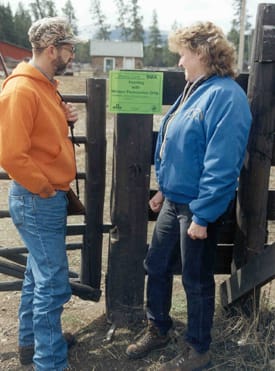By Nik Donovic
Hunters face many potential legal liabilities as well as dangers to their personal health and well-being each time they hunt. As a hunter, it is your responsibility to understand the laws and restrictions in the area where you intend to hunt. If you want to dramatically minimize potential legal liabilities for which you could be held accountable, practicing hunting safely at all times is essential.
Hunters, and owners of hunting land, who join organizations such as Union Sportsmen’s Alliance can also learn more about and contribute to ongoing conservation efforts designed to protect local wildlife habitats and improve access to quality hunting areas.
 Safety Tips to Help Keep You Safe While Hunting
Safety Tips to Help Keep You Safe While Hunting
There are certain gun and other safety tips you will want to keep top-of-mind at all times while hunting. Learning and adhering to these safety rules could mean the difference between you sustaining serious injury in a hunting or firearms accident and you coming home unharmed and safe.
• Always assume a gun is loaded.
• Never point your gun at other people. Always point it in a safe direction.
• Your finger needs to stay off the trigger until you are ready to fire a shot.
• Line your target up, but also check the area beyond your target before you shoot.
• While a deer cannot distinguish difference in certain colors, wearing hunter orange could help save your life. The New York State Department of Environmental Conservation states hunters are seven times less likely to be mistaken for game and shot when they are wearing hunter orange.
• Use a sturdy, portable tree stand that does not need to be nailed into a tree. (In some areas, it is illegal to build permanent tree stands, platforms, blinds and other such structures.)
• If you plan to use a tree stand to give yourself a better vantage point, stay as low as possible. You are more likely to sustain serious injury the higher you are off the ground.
• Never carry guns or other weapons up a tree. Raise these items up and down, unloaded, so you minimize your risk of an accidental discharge.
• Stay physically fit. Hunting can be taxing and cause significant strain on a person’s body. Exercising regularly, eating well and preparing yourself for the long haul can reduce your risk of suffering serious health problems while hunting.
Potential Liabilities Associated with Hunting Accidents and Injuries
The key to prime hunting land is access. An estimated 85 percent of the property in New York State is privately-owned. This means hunters have either zero or very limited access to the forests, fields and other areas where wildlife typically roam.
 Property Owners
Property Owners
While some land owners may be willing to provide temporary access to their properties for hunting purposes, there are a number of potential legal liabilities associated with hunting accidents and injuries sustained on private property. Property owners with extensive amounts of land are often forced to deal with people trespassing on their properties. Even when a property owner grants temporary access to hunters, there are certain circumstances in which he or she could still be held legally liable for any injury or harm caused by the hunters.
Should an owner of hunting land fail to warn hunters of potential dangers on the property, neglect to post trespassing and other warning signs, or act in a negligent manner that puts hunters or others needlessly in harm’s way, he or she might be liable. Owners of hunting land, as well as hunting clubs, are advised to obtain hunting land and lease liability insurance to protect themselves and their assets.
Hunters
Hunters who do not own a large piece of land must find other ways to gain access to hunting land. In many cases, hunters can obtain a lease, request restricted access from the property owner, take advantage of state-owned land or become a member of a hunting club.
If you do plan to hunt on a piece of private land, you need to ask permission first or you could, at the very least, face trespassing charges. Hunters themselves could also face potential legal issues if they are found responsible for causing injury or harm to another as a result of negligence. Hunters can purchase insurance to cover injury, death, property, equipment, guest liability, member-to-member coverage, general liability and more.
Sources:
NY State Department of Environmental Conservation: Hunter Safety Basics
Register-Star: Access Is Key to Prime hunting LandScott C. Gottlieb & Associates, LLP: http://www.1800talklaw.com/personal-injury/hunting-firearms-accidents/








